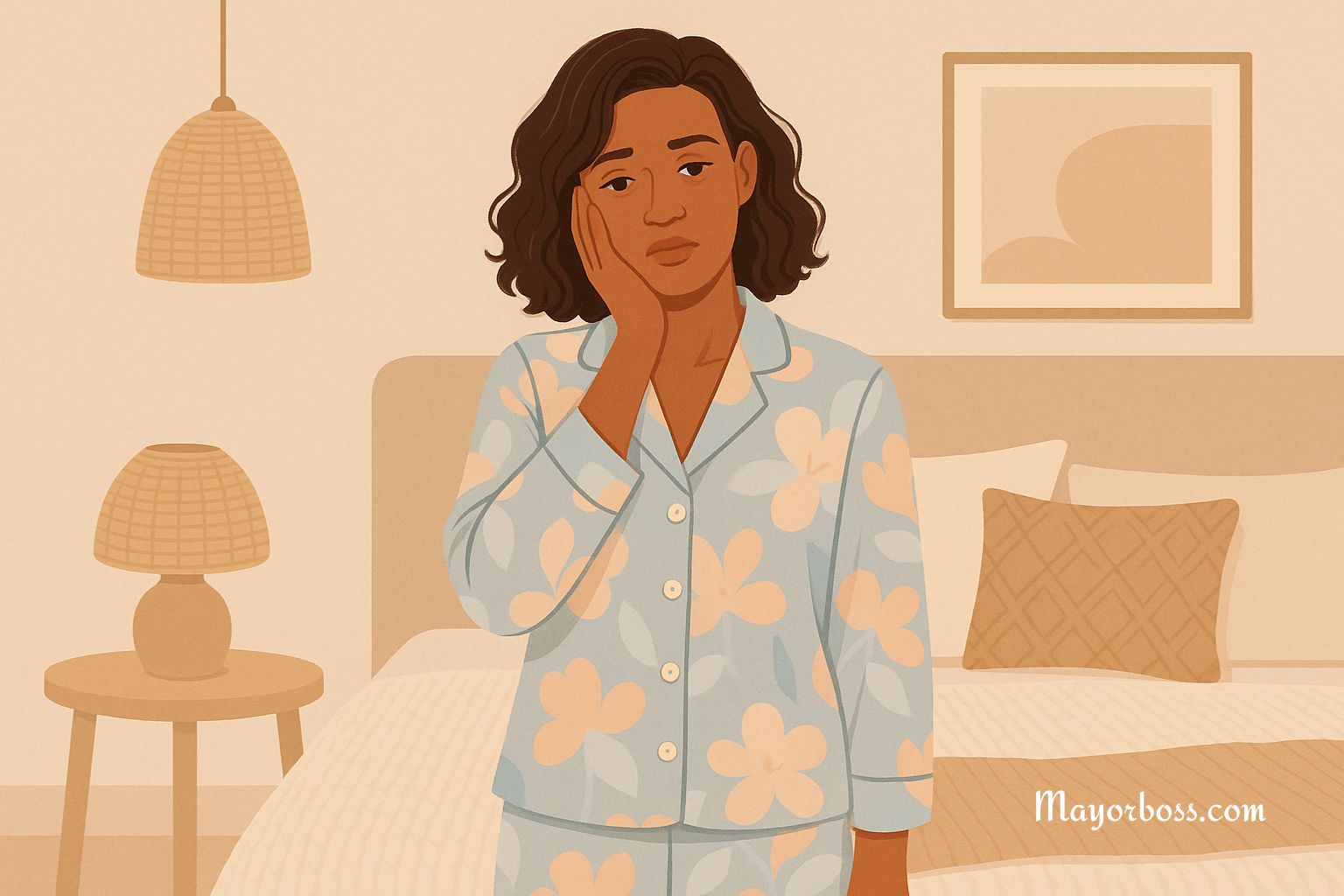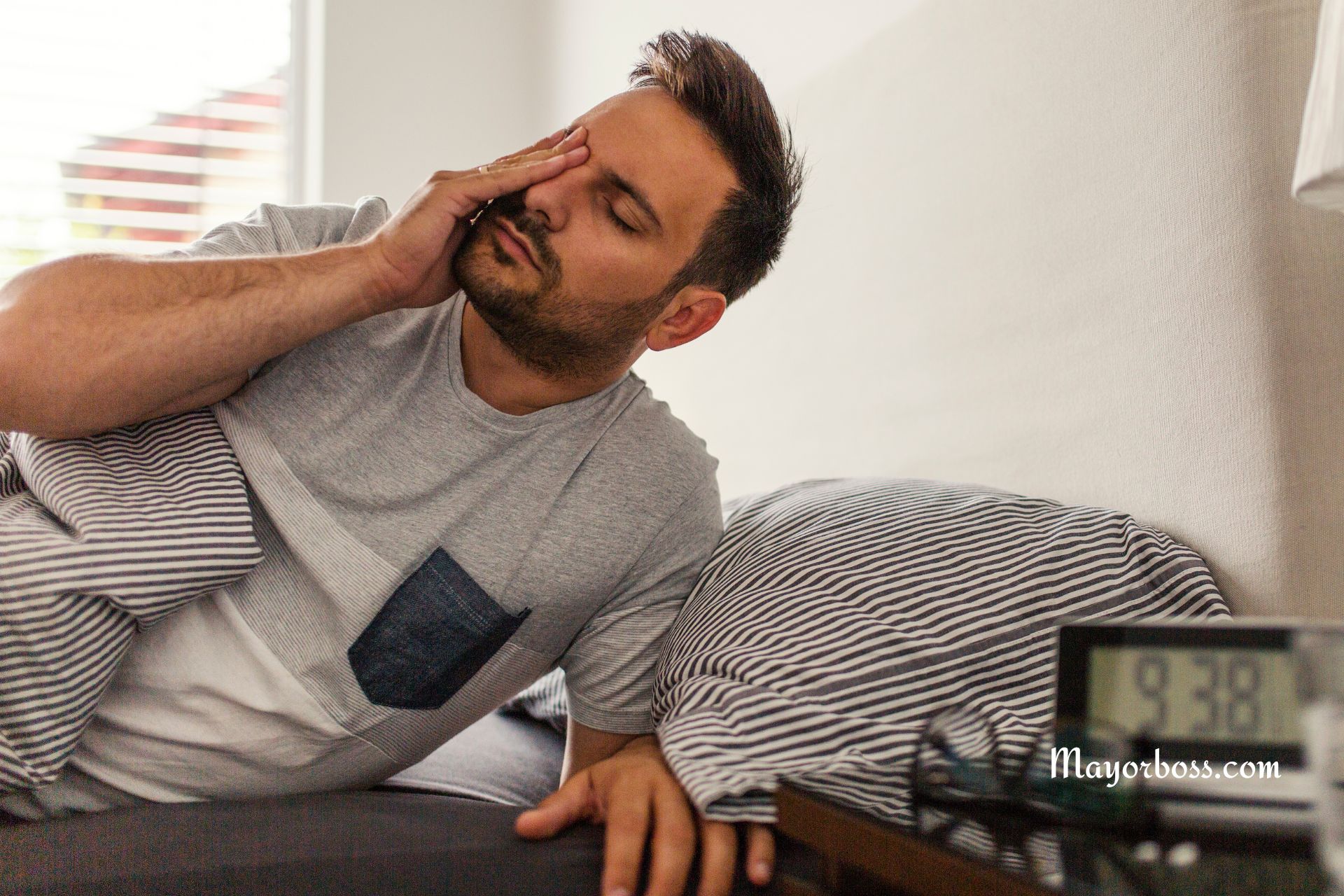5 Clear Signs You Are Not Getting Enough Sleep
Sleep is not just a way for your body to rest. It is essential for your brain, heart, and immune system to function properly. When you consistently miss out on good-quality sleep, your body sends out warning signs. Many people ignore these signs, thinking they are just part of a busy life. However, sleep deprivation can have serious consequences if left unaddressed.
Here are five clear signs that you are not getting enough sleep.

1. You Feel Tired Even After Waking Up
One of the earliest and most obvious signs of sleep deprivation is waking up feeling tired instead of refreshed.
Normally, a full night of sleep allows your body to complete several cycles, each made up of deep sleep and REM (rapid eye movement) sleep. If your sleep is cut short or interrupted, these cycles cannot complete properly. As a result, your body and mind do not get the full restoration they need.
When you constantly feel groggy in the morning, it is a strong signal that your body is craving more rest.
2. You Struggle to Focus and Remember Things
Poor sleep directly affects your brain’s ability to focus, learn, and remember.
You might notice that tasks that usually seem easy now require much more effort. You may forget simple things, like why you walked into a room or what someone just told you. Sleep helps consolidate memories and clear away unneeded information from the day. Without enough rest, your brain cannot process information properly, leading to lapses in attention and memory.
Over time, chronic sleep deprivation can even affect your ability to think clearly and solve problems.
3. You Get Sick More Often
Your immune system needs sleep to stay strong.
During sleep, your body produces important proteins called cytokines, which help fight infection and inflammation. If you do not get enough sleep, your body produces fewer of these protective proteins. This makes it easier for viruses, bacteria, and other infections to take hold.
If you find yourself catching colds frequently or taking longer to recover from illness, your lack of sleep could be a major reason.
4. You Feel Moody, Irritable, or Depressed

Sleep and emotional health are deeply connected.
Without enough sleep, your brain becomes less able to regulate emotions. You may notice that you are more easily upset, frustrated, or overwhelmed by small problems. You might snap at loved ones or feel unusually anxious. Over time, chronic sleep deprivation raises the risk of developing mood disorders like depression and anxiety.
If you are feeling unusually emotional, it is important to consider whether poor sleep habits might be contributing to these changes.
5. You Crave Unhealthy Foods and Gain Weight
Lack of sleep interferes with the hormones that control hunger, leading to stronger cravings for sugary and high-fat foods.
When you are tired, your brain seeks quick energy sources. Unfortunately, it often pushes you toward unhealthy choices like sweets, chips, or fast food. Sleep deprivation also lowers the hormone leptin, which signals fullness, and raises the hormone ghrelin, which increases appetite.
As a result, people who consistently do not sleep enough are more likely to overeat and gain weight over time.
Tips for Getting Better Sleep
- Stick to a Schedule: Go to bed and wake up at the same time every day, even on weekends.
- Create a Relaxing Bedtime Routine: Calm your mind with quiet activities like reading, gentle stretching, or deep breathing before bed.
- Limit Caffeine and Alcohol: Both can interfere with your ability to fall and stay asleep.
- Make Your Bedroom Comfortable: Keep it dark, cool, and quiet. Invest in a good mattress and pillow if needed.
- Limit Screen Time: Turn off electronic devices at least one hour before bed. The blue light from screens can disrupt your body’s natural sleep rhythm.
When to Seek Help
If you have tried improving your sleep habits but still feel exhausted, it may be time to speak with your doctor. Sleep disorders like insomnia, sleep apnea, or restless legs syndrome are common and treatable.
Takeaway
Ignoring sleep problems does more than make you feel tired. It raises the risk of serious health issues such as high blood pressure, diabetes, heart disease, and stroke. It also affects mental health, relationships, and overall quality of life.
Getting enough sleep is not a luxury—it is a basic need. Most adults require between seven and nine hours of sleep each night. However, individual needs may vary. If you are unsure whether you are sleeping enough, pay attention to how you feel during the day. Your energy, mood, and ability to concentrate are better indicators than simply counting the hours you spend in bed.






